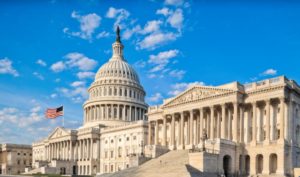
Whistleblowing incentives are crucial to agency enforcement.
Corporate scandals are often the impetus for greater regulation. The Enron, Worldcom, and Arthur Andersen revelations led to the Sarbanes-Oxley Act, and the excesses of the financial sector paved the way for the Dodd-Frank Wall Street Reform and Consumer Protection Act. Regulators on both sides of the Atlantic made changes in the wake of the Volkswagen emissions scandal.
Yet a critical lesson for lawmakers and regulators to learn in the wake of corporate scandals is not just that we need more—or better—rules, but that effective enforcement requires agencies to encourage people to come forward when laws are being ignored. Whistleblowers inside an organization have been the driving force for blowing the lid off of the Enron, Worldcom, UBS tax fraud, and FBI crime lab scandals. Outsider Harry Markopolos repeatedly warned the U.S. Securities and Exchange Commission (SEC) about Bernie Madoff, but no action was taken until Madoff’s sons called law enforcement. Whistleblowers on the inside have been essential for uncovering most of the big white-collar scandals of the 21st century.
Empirical evidence backs up these anecdotes. A 2008 study by the Association of Certified Fraud Examiners found that whistleblower tips were responsible for uncovering 54 percent of fraud schemes in public companies, while external auditors could be credited with unearthing only 4.1 percent of such scandals. A PricewaterhouseCoopers analysis found that whistleblowers were responsible for 43 percent of all fraud detection. Corporate controls, external auditors, and law enforcement were all less likely to find misconduct. In 2017, the U.S. Department of Justice collected $3.7 billion in settlements and judgments from False Claims Act cases against companies and individuals who had defrauded the government. Of that $3.7 billion, 92 percent came from cases brought by whistleblowers.
These findings are intuitive. Those individuals best positioned to uncover illegal behavior are working at the companies or organizations partaking in it. Whistleblowers on the inside have easier access to evidence of misdeeds, deeper knowledge of the bad actors engaging in unlawful behavior, and greater insights into the methods through which a fraud or theft is being carried out.
In emphasizing “the valuable role private parties can play” in detecting fraud, Chad Readler, Acting Assistant Attorney General of the Justice Department’s Civil Division, has noted that “because those who defraud the government often hide their misconduct from public view, whistleblowers are often essential to uncovering the truth.”
What whistleblowers sometimes lack is the incentive to come forward. In contrast with an external auditor or law enforcement officer whose job literally is to find out about illegal activity, corporate employees are supposed to increase their companies’ bottom lines. When employees see their companies do well, they have a better of chance maintaining their jobs, getting raises, and enjoying increases in the value of their stock options.
Whistleblower incentives serve the purpose of decoupling employees’ incentives from the interests of their employers. By offering sufficient financial incentives to whistleblowers, employees can find it in their economic interest to report misconduct.
Critics of whistleblower provisions will point out that this also gives whistleblowers incentives not only to uncover misdeeds, but to over-report activities that are not illegal at all. First, this is likely to be less of a concern than one might expect because of the negative career repercussions and social ostracism whistleblowers confront. But this is precisely what the enforcement arms of administrative agencies are for: to separate legitimate whistleblowers from individuals with dubious claims.
Some agencies have taken positive steps to protect whistleblowers and offer them incentives. The SEC in particular has been a leader, as the Dodd- Frank Act authorized new whistleblower protections and the SEC issued rules with expansive protections. The SEC also permits qui tam suits in which a private party can bring an action on behalf of the government in exchange for a portion of the recovery. Mandatory arbitration cannot be used to stop such a suit. The rule also permits plaintiffs to file anonymously, a first in American law. Not surprisingly, the rule has been particularly effective at uncovering misconduct. Dodd-Frank also authorized the Commodity Futures Trading Commission (CFTC) to take similar actions, and the CFTC is finally ramping up its program. The Internal Revenue Service has a similar provision, helping to limit illegal tax evasion by Swiss banks. A recent congressional bill took statutory language from the Dodd-Frank Act and tax law and applied it to automobile safety.
Other agencies are not doing as well. In some regulatory fields, Congress has not given the relevant regulatory body authority to enact whistleblower provisions. The U.S. Department of the Interior, the U.S. Fish and Wildlife Service (FWS), and the National Oceanic and Atmospheric Administration (NOAA) can claim no such excuse. The Lacey Act and Endangered Species Act both encode valuable whistleblower protections, but the Interior Department, FWS, and NOAA have failed to publicize the possibility of rewards on their websites, in press releases, and during speeches by agency leaders. As a result, there have been only a few documented payouts even though wildlife whistleblower incentives have been authorized by law for decades.
The result has been seismic growth in wildlife crime. Between 2007 and 2014, rhino poaching increased by 9,000 percent. In 2007, 13 rhinos were poached; by 2014, that figure was over 1,200. Even those who do not fret about animal poaching itself should be worried about this dramatic spike. There is increasing evidence that groups that traffic in animals operate as organized crime syndicates that also smuggle drugs, weapons, and humans. Despite their expansive regulatory authority, the Interior Department and FWS have failed to take advantage of already-existing whistleblower programs that could curb this behavior.
By creating incentives for whistleblowers, regulators can bolster their enforcement efforts and ensure that their carefully crafted rules are actually complied with. Regulators should make better and more frequent use of this potent tool.




